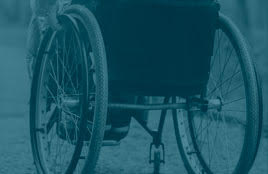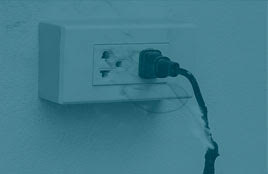Bringing your own medications from home and taking them while in the hospital has resulted in hundreds of medication errors over the years. If you bring your own medicines to the hospital, give them to the nurse. Do not take them without the nurse’s supervision because doing so may interfere with another drug you are receiving.
Medications prescribed for and given to patients while they are in the hospital are usually supplied by the hospital’s pharmacy department. However, there are times it may be necessary for a patient to bring his or her own medications into the hospital. For example, patients are often asked to bring their medications with them so that the healthcare provider can see what drugs they are currently taking from home.
In 2012, Pennsylvania healthcare facilities submitted 879 medication error reports to the Pennsylvania Patient Safety Authority that were caused by patients taking their own medications while in the hospital.
The Joint Commission calls on healthcare facilities to follow some guidelines in medication reconciliation. The guidelines include:
- The hospital defines when medications brought into the hospital by patients, their families, or licensed independent practitioners can be given.
- Before using or giving a medication brought into the hospital by a patient, his or her family, or a licensed independent practitioner, the hospital identifies the medication and visually checks the medication for any irregularities.
- The hospital informs the prescriber and patient if the medications brought into the hospital by patients, their families, or licensed independent practitioners are not permitted.
What Do the Medication Error Reports Show?
Of the 879 medication error reports submitted about patients taking their own medications from home while in the hospital, more than 25% of the reports mention a medication considered to be a “high-alert” medication. High-alert medications are medications that have an increased risk of causing significant patient harm when they are used in error. The reports also showed that nearly 8% (70) of the reported events resulted in a transfer of the patient to a higher level of care, like an ICU, with 67% of these cases (47) involving patients taking their own controlled substances (narcotic/pain meds) from home.
Why Do Patients Bring Their Own Medications?
Most of the reports submitted to the Authority involved situations where the patient brought in their medications without telling hospital staff and gave the medications to themselves.
Over 12% of reports (111) showed that patients gave themselves their own medications because they were not happy with the care they were receiving. For example, patients either stated that their pain was poorly controlled, they were “tired of waiting” for their medication, or they said that their disease was not being properly treated while in the hospital.
What Do I Need to Know to Stay Safe?
- Make sure if you are being admitted into the hospital that you share your up-to-date medication list with your doctor/nurse so they know what medications you are on. If you are on medications on a daily basis, keep a list in your wallet or purse.
- Discuss with your doctor/nurse what medications you will be on while in the hospital and what medications you can take from home (if any). If you are not supposed to take medications from home – don’t.
- If you are uncomfortable with any part of the discussion regarding your medications, make sure you discuss those concerns with your doctor/nurse until you are satisfied with your medication plan while in the hospital.
- During your hospital stay, if you do not feel you are being properly medicated, make sure you discuss your concerns with your doctor/nurse or a nurse manager until you are satisfied.
- Don’t be afraid to ask questions regarding your medications, especially during your hospital stay. It is important that you know details regarding your medication plan especially while in the hospital. Know what medications are being given, why the medications are being given, and how much of the medication should be given each day.
- If you are given permission to take medications from home while in the hospital, make sure you understand the amount of the drug you should be taking each day. It may be different than what you would normally take at home.






